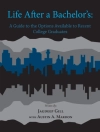As police racism unsettles Britain’s tolerant self-image,
Black resistance to British policing details the activism that made movements like Black Lives Matter possible. Elliott-Cooper analyses racism beyond prejudice and the interpersonal – arguing that black resistance confronts a global system of racial classification, exploitation and violence. Imperial cultures and policies, as well as colonial war and policing highlight connections between these histories and contemporary racisms. But this is a book about resistance, considering black liberation movements in the 20th century while utilising a decade of activist research covering spontaneous rebellion, campaigns and protest in the 21st century. Drawing connections between histories of resistance and different kinds of black struggle against policing is vital, it is argued, if we are to challenge the cutting edge of police and prison power which harnesses new and dangerous forms of surveillance, violence and criminalisation.
İçerik tablosu
Introduction 1 ‘We did not come alive in Britain’: histories of Black resistance to British policing 2 Into the twenty-first century: resistance, respectability and Black deaths in police custody 3 Black masculinity and criminalisation: the 2011 ‘riots’ in context 4 2011: revolt and community defence 5 All-out war: surveillance, collective punishment and the cutting edge of police power 6 Futures of Black resistance: disruption, rebellion, abolition Conclusion Index
Yazar hakkında
Adam Elliott-Cooper is a research associate in sociology at the University of Greenwich












